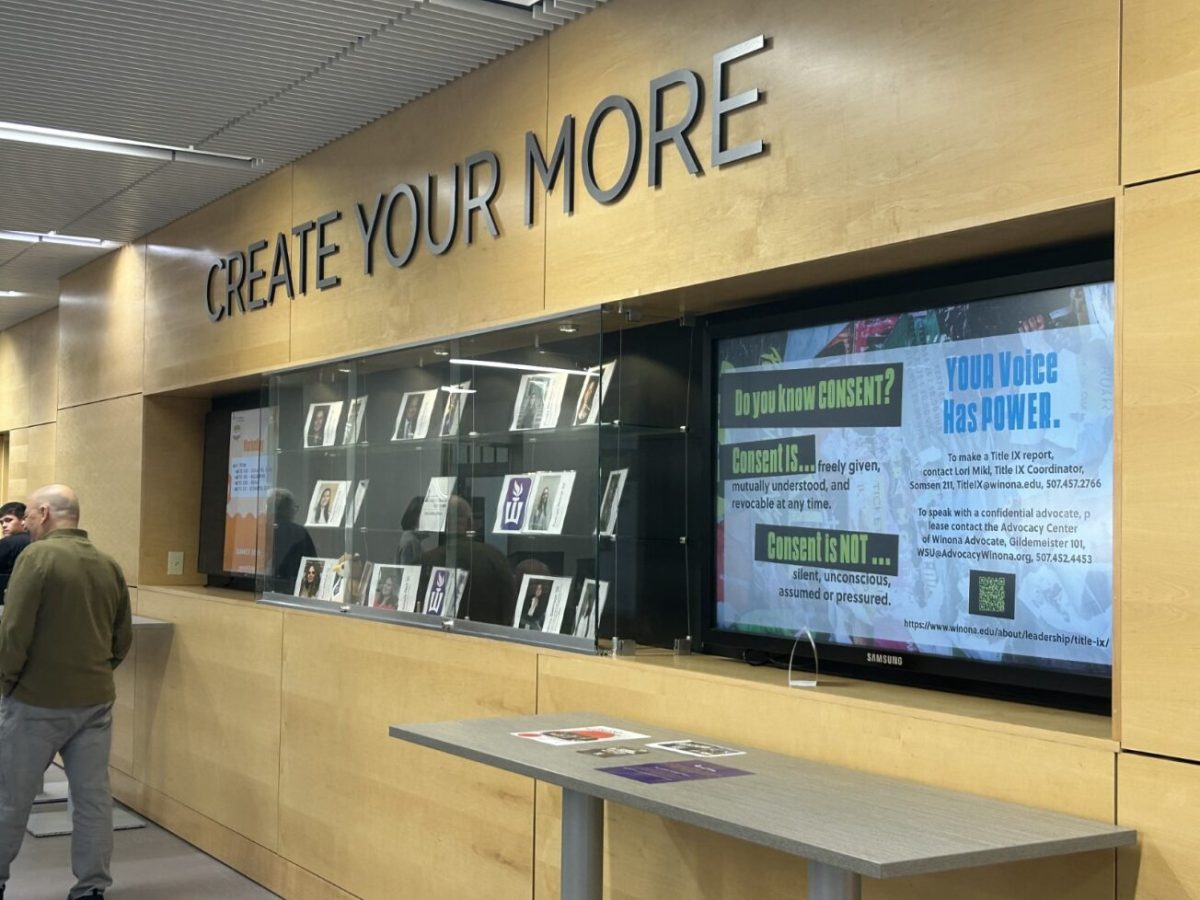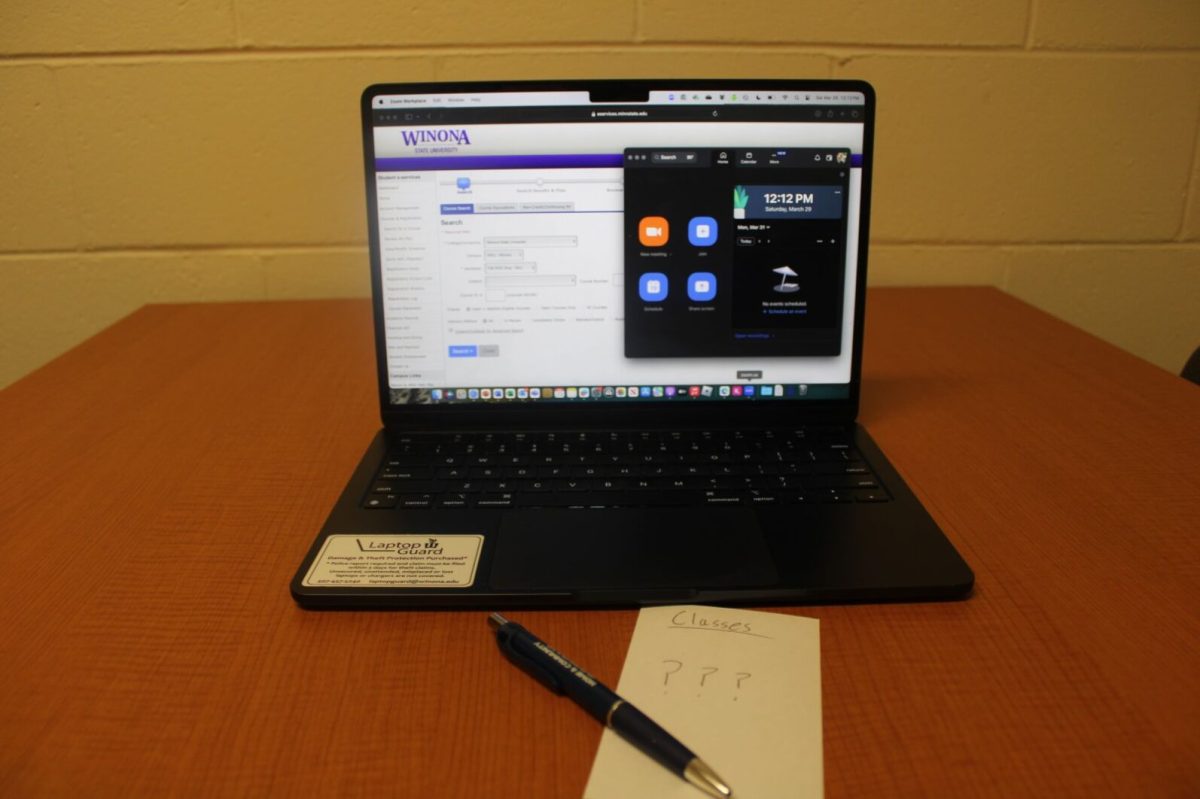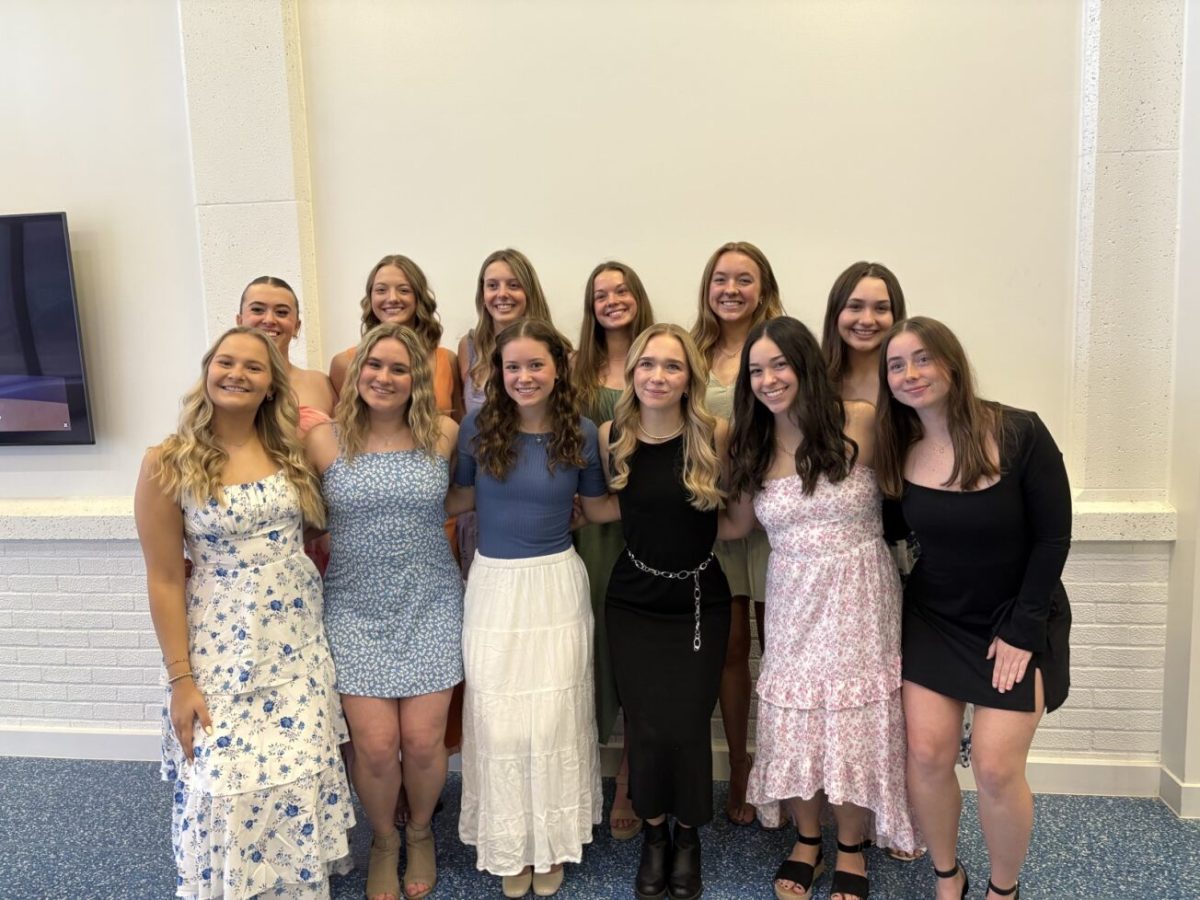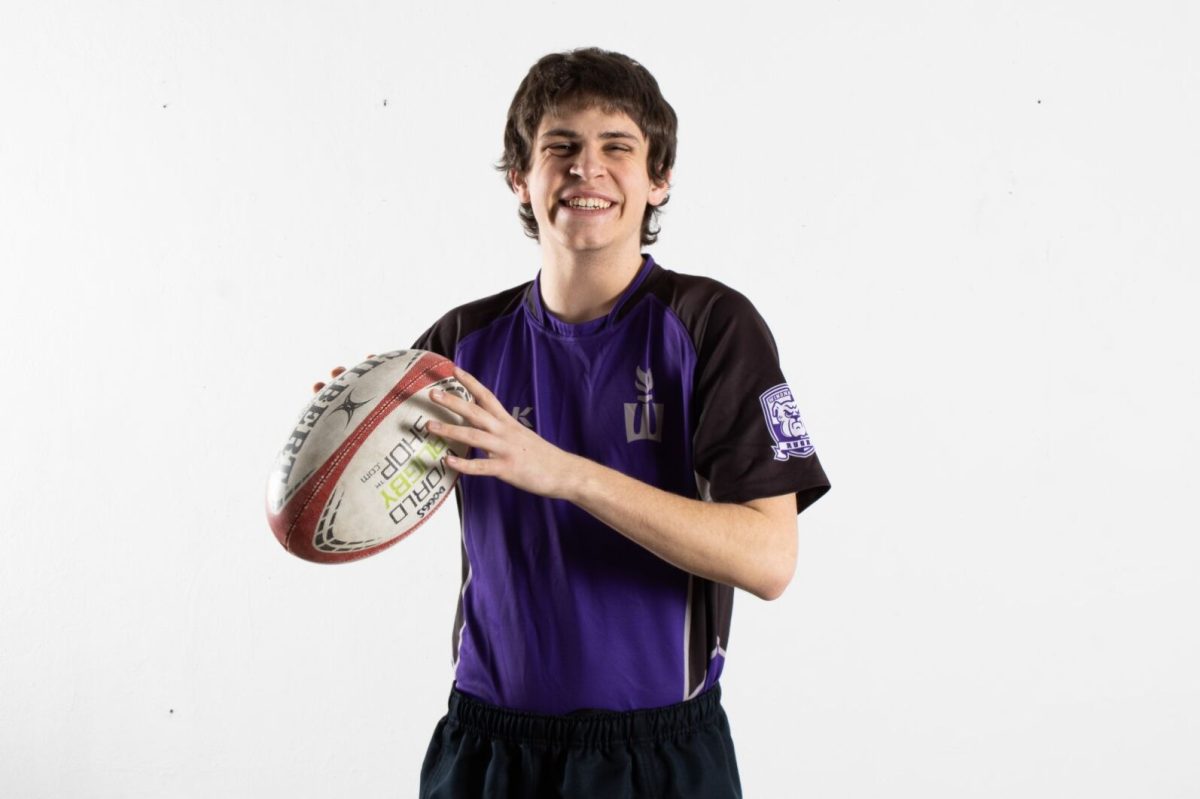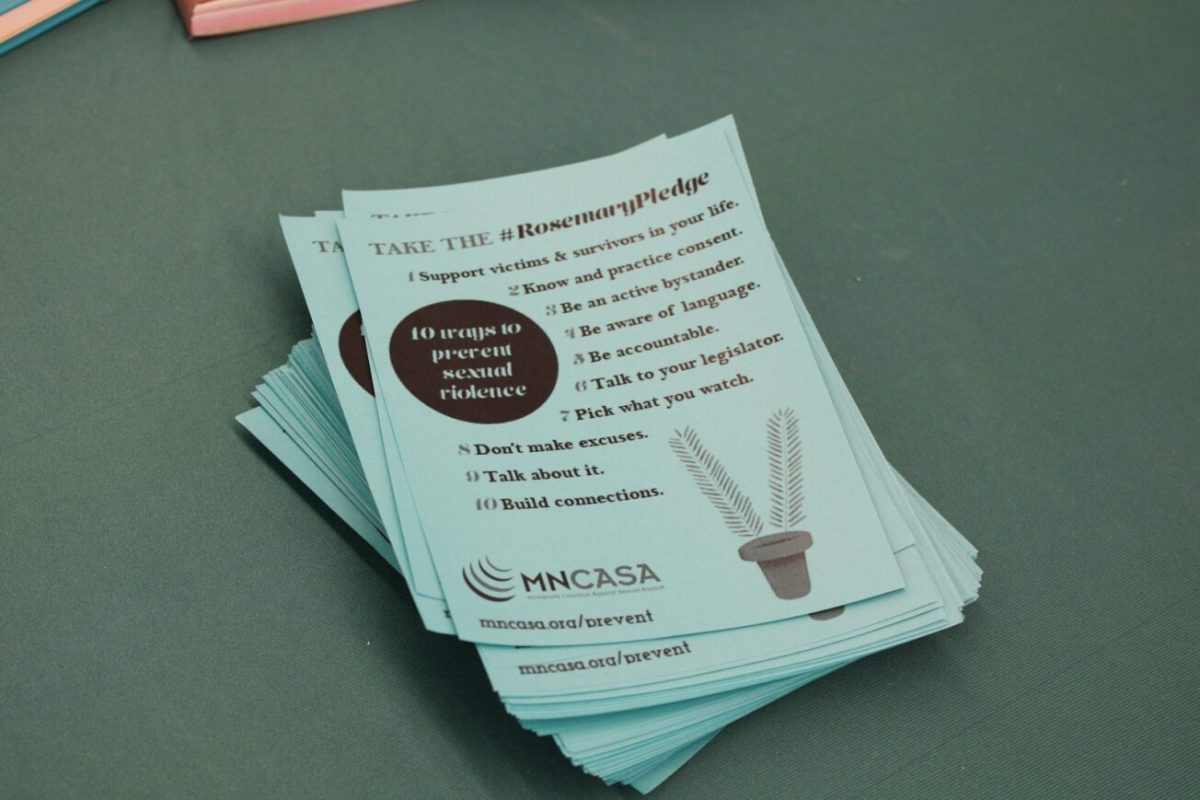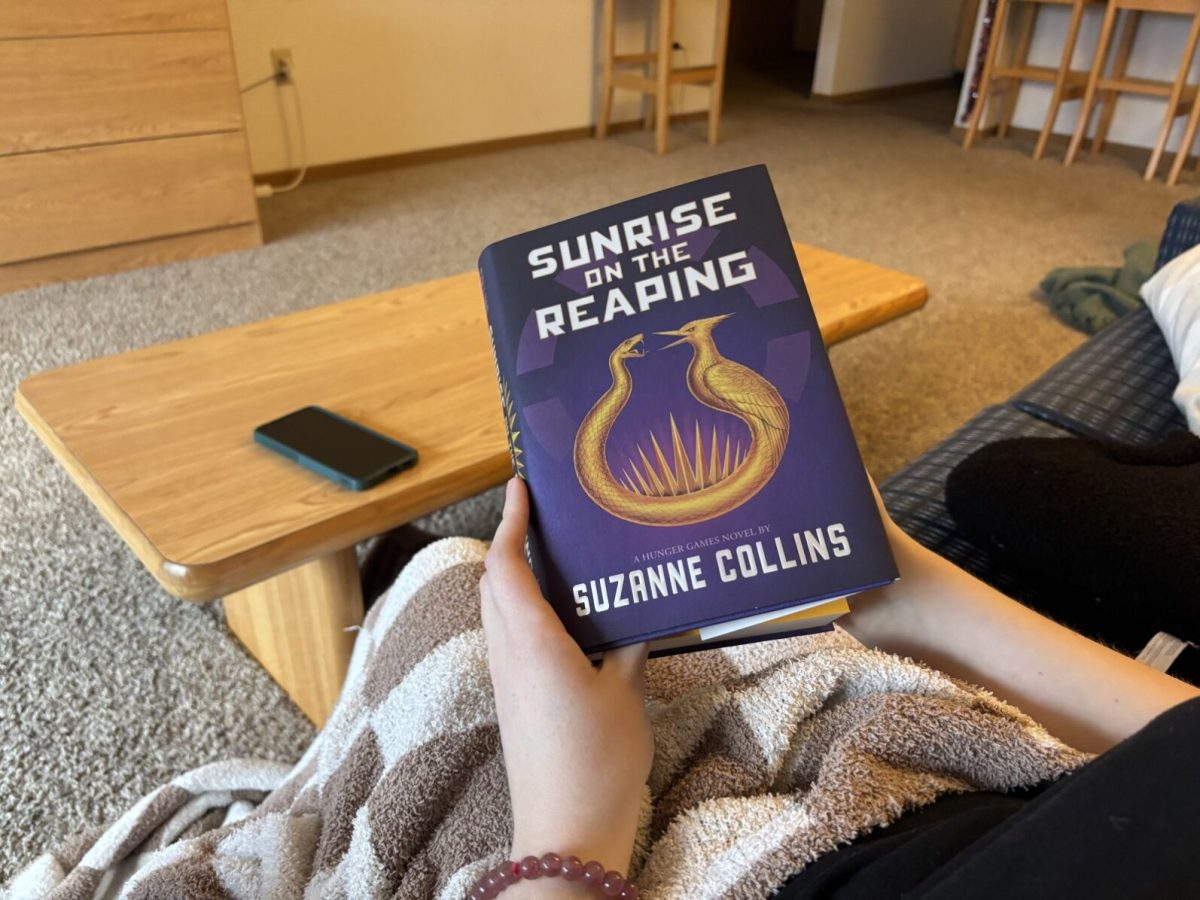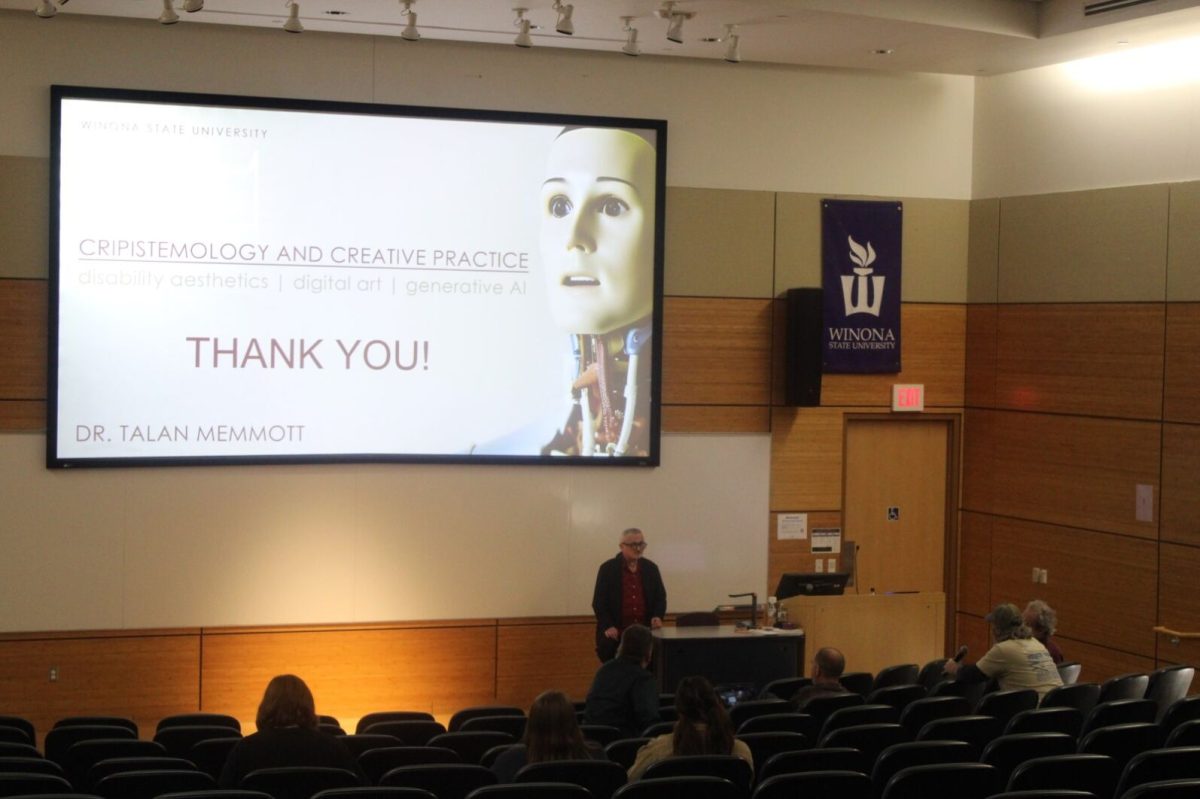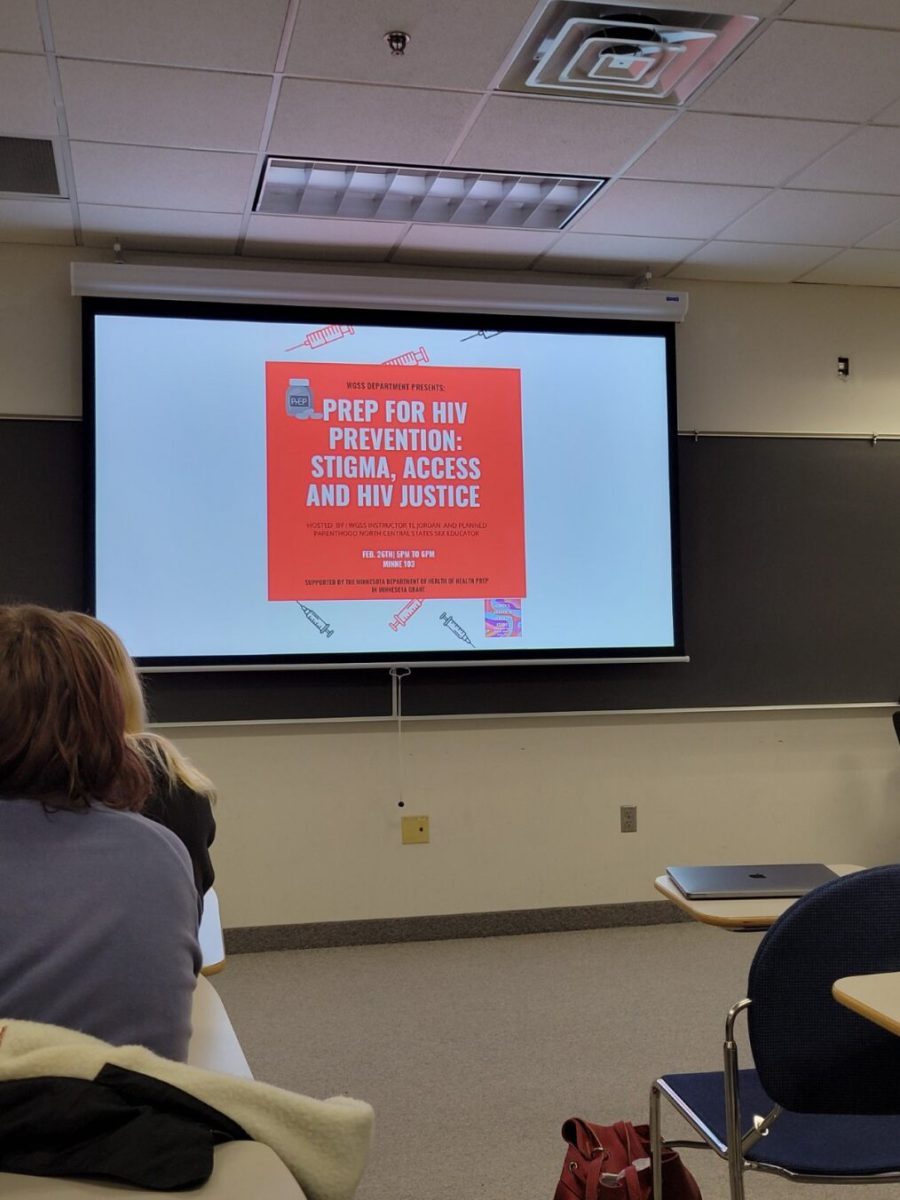Julia Sand/Winonan
Winona State University has added 71 online courses between the summers of 2009 and 2012.
Diane Dingfelder, director of outreach and continuing education, said although there has been a rise in fall and spring courses offered, the most significant improvement in online course offerings has been in summer courses.
While Winona State offers online courses all year long, the main focus is summer courses, which give students the option to take classes from anywhere.
Ken Graetz, director of teaching, learning and technology services, said Winona State recognized that students were completing courses from other institutions.
“There was an opportunity for us to better serve our students, and to make it more convenient,” Graetz said.
In the summer or 2012, 36 percent of Winona State’s summer courses were online. Twenty other institutions in the area have an online summer course percentage over 40 percent, and Dingfelder said she is confident that Winona State is also heading in this direction.
The primary focus of these courses is for current undergraduate students that wish to work and/or be home through summer, for graduate program students who do not have easy access to campus, and for working adults in the adult completion programs.
Megan Kathman, a Winona State alumna, said online summer courses are what made it possible for her to end her senior year with a less demanding course load.
Kathman would have been able to graduate early; however, being a Public Relations major required Kathman to take a spring semester course, Campaigns. Kathman said despite not being able to graduate early, summer courses allowed her to get her generals completed, allowing her to focus more intently on her major courses in fall and spring.
Graetz said online course quality is something Winona State is striving to improve as well.
Graetz, along with Robin O’Callaghan and other team members, are continuing their third year of “We Teach,” a program designed to educate and assist professors in improving their online courses.
“Often students say, ‘I don’t know what I’m doing in this class.’ In online, you have to over compensate,” Graetz said.
“We Teach” uses a database called Quality Matters. The system is a peer review process that is faculty centered, with eight phases including a formal review, O’Callaghan said.
O’Callaghan examines these courses, filling out a rubric as if she were a student so professors can see where they fall short.
O’Callaghan said this program is all about support and teaching. O’Callaghan and Graetz help professors learn ways to make it easier for students to navigate through the online class, as well as increase interaction with students.
“Good courses are courses where you feel connected,” said Graetz.
“We Teach” helps professors to learn to use discussion boards, drop box for audio feedback, and other ways to help students get connected with the professor and other students.
Students who are interested in taking summer courses should know their learning style.
O’Callaghan and Graetz said students must know their learning styles in order to succeed: online courses require students to carve out chunks of time to devote to their class. Students should also spend time reviewing the class immediately after it opens and build a timeline of due dates and reading material, they said.
Contact Julia at JSand10@winona.edu


